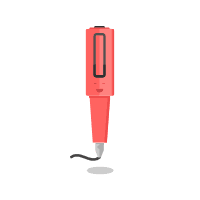
[110.24.b.2.a] Dictionary Skills (TEKS Grade 8 ELA)
Quiz by TEKS Grade 8 ELA
Grade 8
English Language Arts and Reading
Texas Essential Knowledge and Skills (TEKS)
Feel free to use or edit a copy
includes Teacher and Student dashboards
Measures 1 skill from
Measures 1 skill from
Track each student's skills and progress in your Mastery dashboards
With a free account, teachers can
- edit the questions
- save a copy for later
- start a class game
- automatically assign follow-up activities based on students’ scores
- assign as homework
- share a link with colleagues
- print as a bubble sheet
10 questions
Show answers
- Q1Read this information about the origin of the word "anthropology": from anthro- meaning man, + logy meaning science This information reveals that anthropology means --the study of animalsthe study of human culture and societiesa condition in which a man is obsessed with sciencescientific studies carried out by male scientists30s110.24.b.2.a
- Q2Read this information about the origin of the word "tachycardia": froRead this information about the origin of the word "tachycardia": from tachy- meaning quick, + cardio meaning heart This information reveals that tachycardia means --m tachy- meaning quick, + cardio meaning heart This information reveals that tachycardia means --a small heart attacka genetic disorder of the hearta condition in which the heart beats abnormally fastto work quickly and with passion30s110.24.b.2.a
- Q3Read this phonetic spelling of the word "somnambulate": [ som-nam-byuh-leyt, suh m- ] What does the "suh m-" part of the pronunciation indicate?that there is a silent portion of the word at the endthat this is a common mispronunciation of this wordthat some people struggle to pronounce this wordthat the "som" part could also be pronounced "suh m-"30s110.24.b.2.a
- Q4When an upside down e (ə) is used in the international phonetic pronunciation listed out in dictionary, what sound does it mean?the sound of u as in cupthe sound of e as in "bed"the sound of a as in "cake"the sound of e as in "feet"30s110.24.b.2.a
- Q5Read this information about the origin of the word "anachronism" from ana- meaning back, again, or apart, and chron meaning time This information reveals that anachronism means --a time keeping devicesomething that is old-fashioned or belonging in another time periodsomeone who is unable to tell timeto time travel30s110.24.b.2.a
- Q6Read this pronunciation of the word brachiosaur using the international phonetic alphabet: /ˈbrākēəˌsôr,ˈbrak-/ What is the most common way to correctly pronounce this word?braw-kee-oh-sorebrae-kee-uh-sorebraw-kee-uh-sorebrae-kee-oh-sore30s110.24.b.2.a
- Q7Read this phonetic spelling of the word "anemone": uh·neh·muh·nee How many syllables are in this word?453230s110.24.b.2.a
- Q8If the origin of a word is listed in a dictionary entry, what does this tell us?the country the word is fromthe country in which the word was first usedthe country in which the word is most commonly usedthe language the word is from30s110.24.b.2.a
- Q9Read this pronunciation of the word lieutenant using the international phonetic alphabet: /lo͞oˈtenənt/ How should this word be pronounced?lew-teh-nuhntloo-te-nantloo-teh-nuhntlew-te-nant30s110.24.b.2.a
- Q10If a word has multiple definitions, how are they listed in the dictionary entry?by part of speechfrom most to least common usagein alphabetical order by the first word of the definitionit varies by dictionary30s110.24.b.2.a